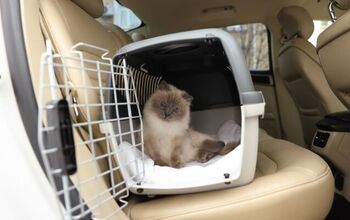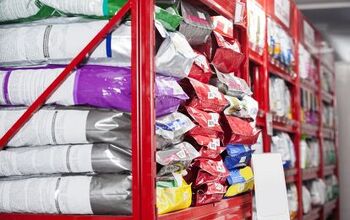How to Become a Feline Foster Parent

So you love cats and you want to do your part to help kitties in need. Why not become a foster parent? You could open your home temporarily to kittens, adult cats, or even seniors and special needs felines who are waiting for their forever home, and you can do what it takes to ensure that they’re safe and happy until they’re ready to be adopted.
Find a Rescue Organization to Help
You might already be aware of a local shelter or rescue group that is in need of kitty foster parents. But if you aren’t, a simple search online should yield plenty of results. You can then contact these groups directly or visit their websites to get more information regarding what is required of every foster parent.
Related: 4 Purrfect Reasons to Adopt a Shelter Cat
While some rescues may be willing to provide you with all of the supplies, veterinary care, and food that your foster kittens or cats will need, this might not always be the case, so be sure to ask in advance so you will know exactly what is expected of you.
Set Up a Space in Your Home for Your Fosters
To become a foster parent, you should have a spare room available in your home where you can provide animals in need with the quiet, safe, and comfortable space that they require.
If you have other pets already in your family, you also need to consider their needs and how they will respond to strange new animals in your home. They might feel confused or they may become territorial, so you shouldn’t just assume that your resident cats will be okay with the sight or smell of additional felines in the house (this is why a separate area for your fosters will be helpful as well).
Related: Impact of Shelter Cat Adoption by Kids With Autism
What You Should Know
In addition to the basics of cat care, as a foster parent, you might need to learn how to bottle-feed orphaned kittens, or you may need to administer medications. Being comfortable with taking on these responsibilities is the key, so if you don’t feel capable of fulfilling these requirements, simply let the rescue group that you’re working with know. In this way, they can place the right animals in the right foster homes for the highest rates of success.
It could also be difficult to give up your fosters after you’ve cared for them and bonded with them, but adopting the animals out to loving families is part of the process (unless, of course, you have a foster fail and end up keeping a kitty). Just keep in mind that, the more kitties you adopt out, the more fosters you can continue saving in the long run.
Share Your Experiences and Inspire Others
Getting involved in rescue by becoming a foster parent is probably easier than you think, and there are already loads of cat foster parents whom you can follow on social media for inspiration and to have even more of your questions answered.
Once you have become a pro at fostering, you might even be motivated to start your own social media account to showcase your adoptable kitties and let other people know about how wonderful fostering can be.
Give Fostering a Chance
When it comes to fostering, there will be ups and downs, but the rewards will be worth all of the effort. Fostering really does save lives, and with shelters full, becoming a foster parent is so important. By opening your home to cats in need, more space will become available in shelters, so even more animals can be rescued and put up for adoption.

Lisa Selvaggio is a freelance writer and editor, and our resident cats-pert, with certifications in pet nutrition and pet first aid. She enjoys producing content that helps people understand animals better so they can give their pets a safe and happy home.
More by Lisa Selvaggio






















